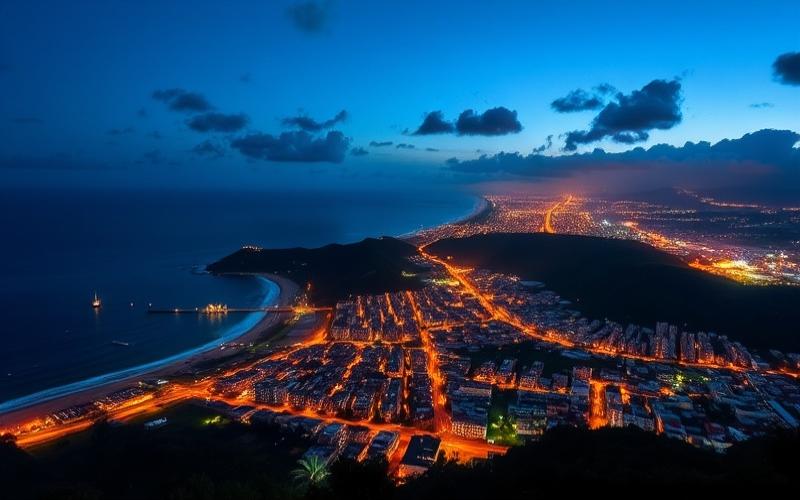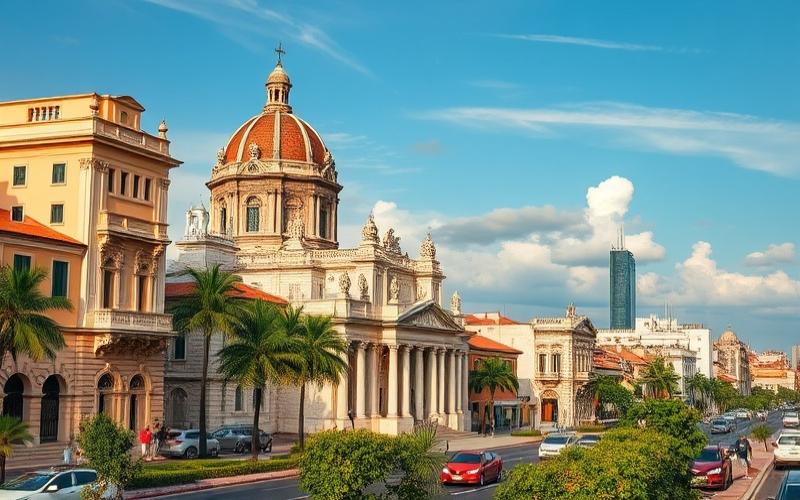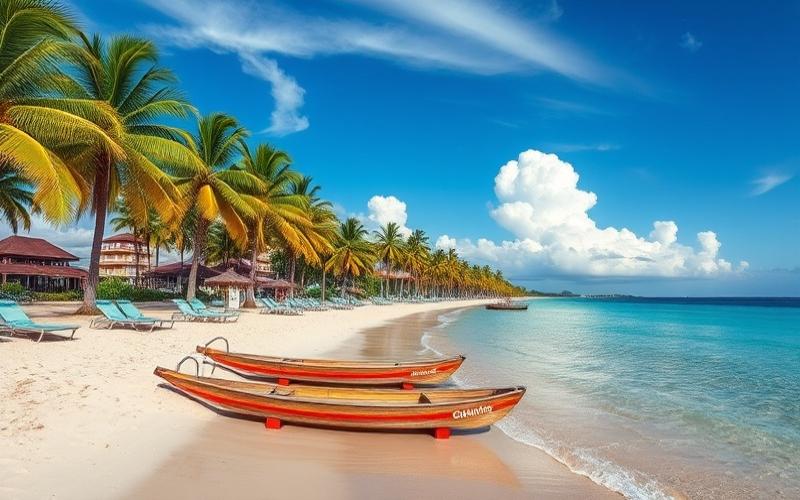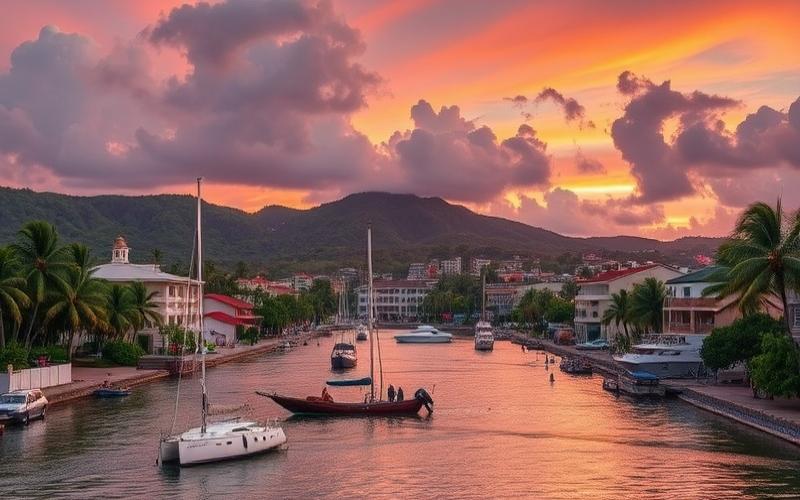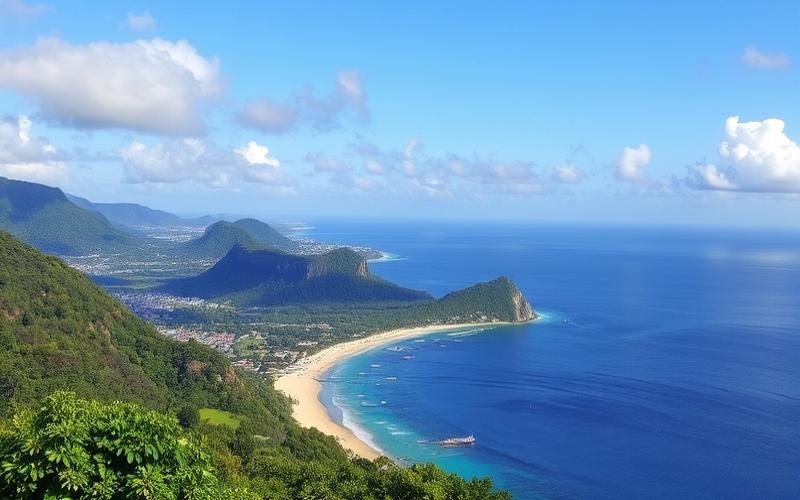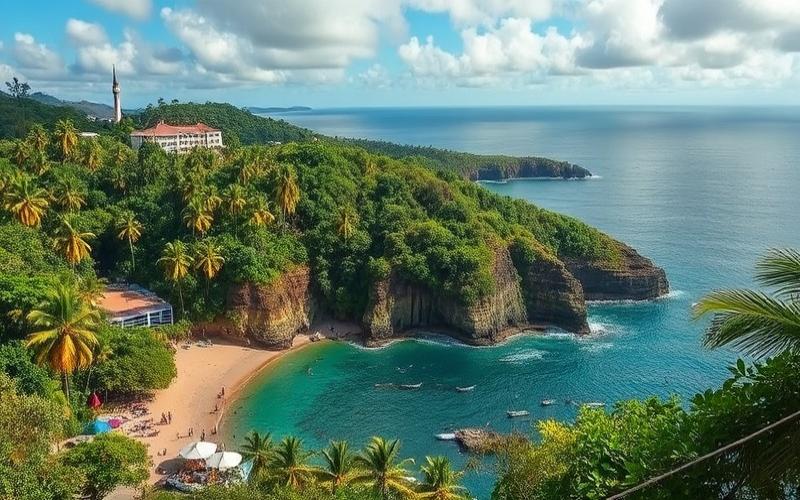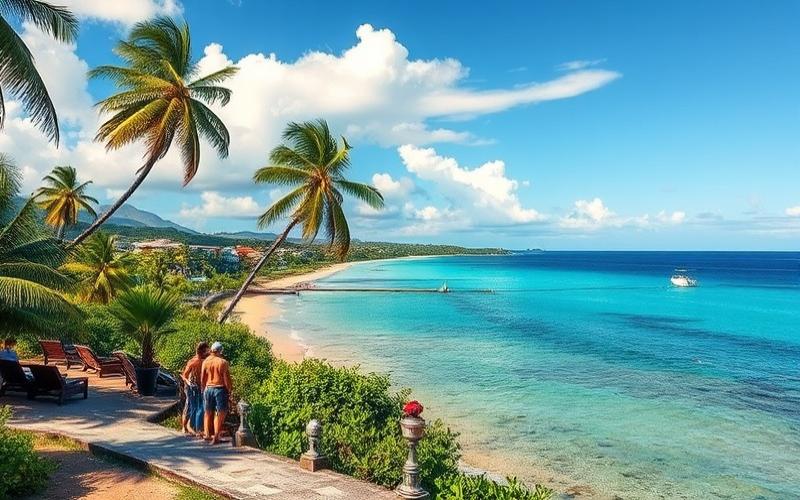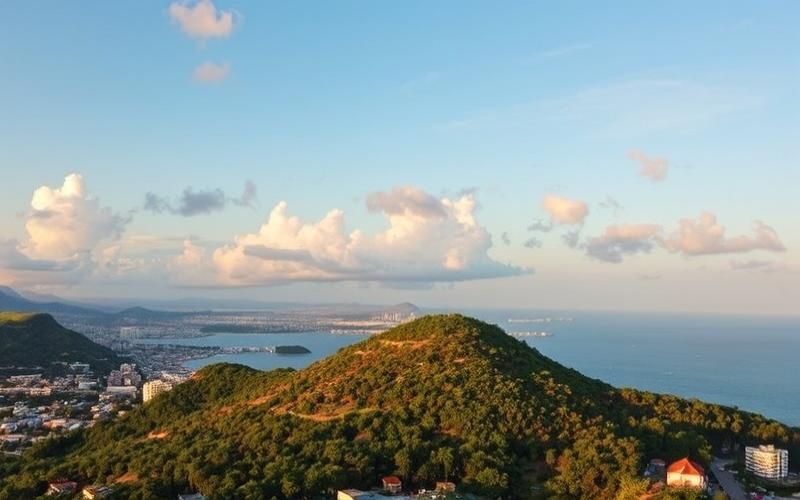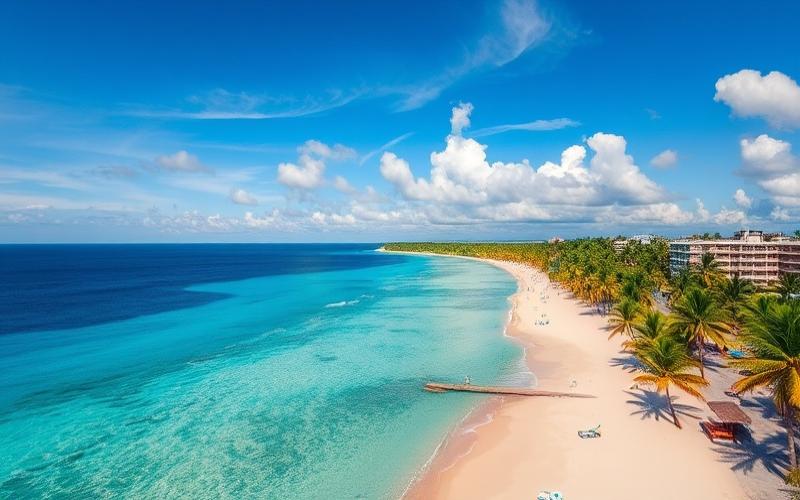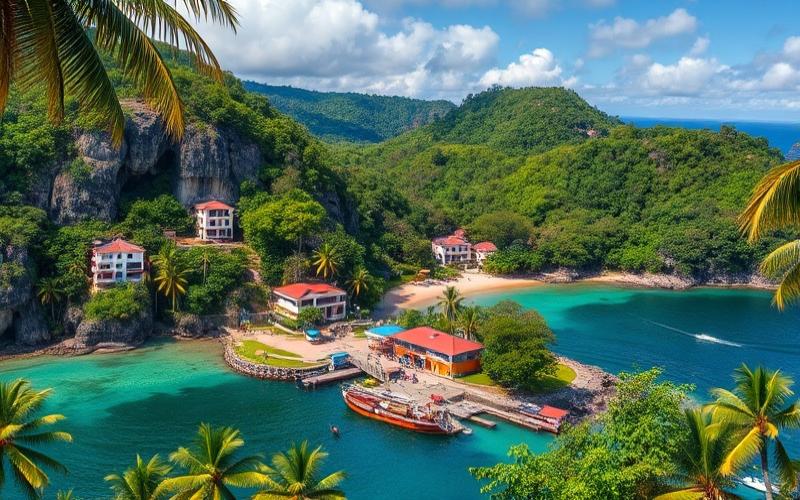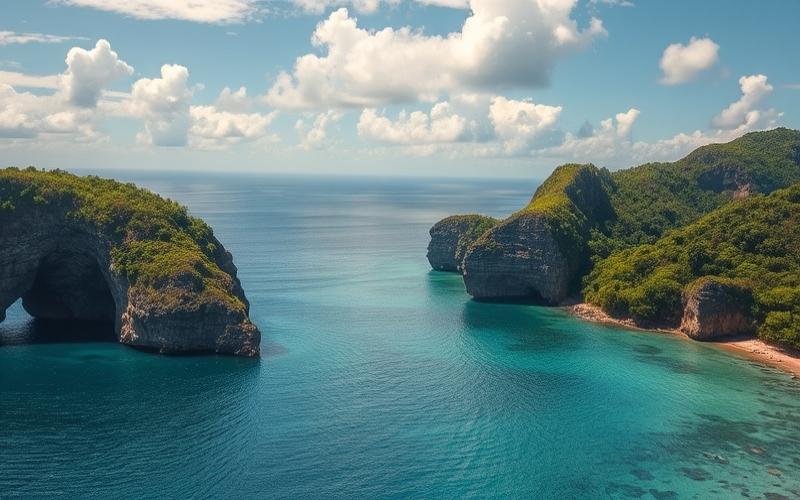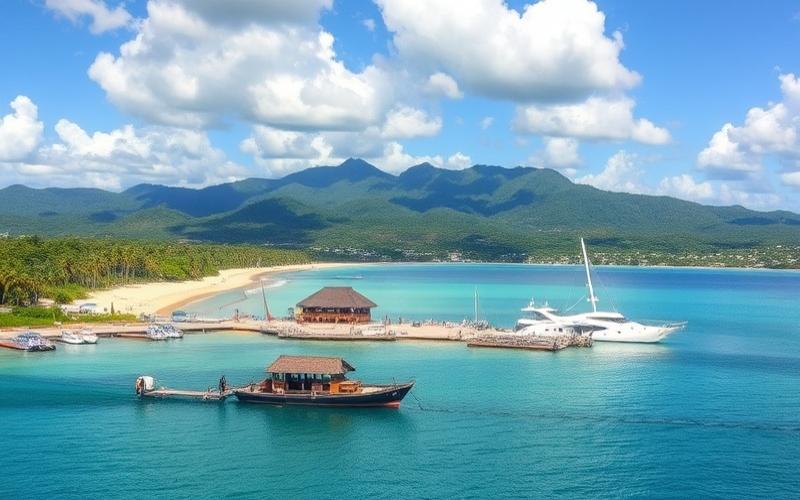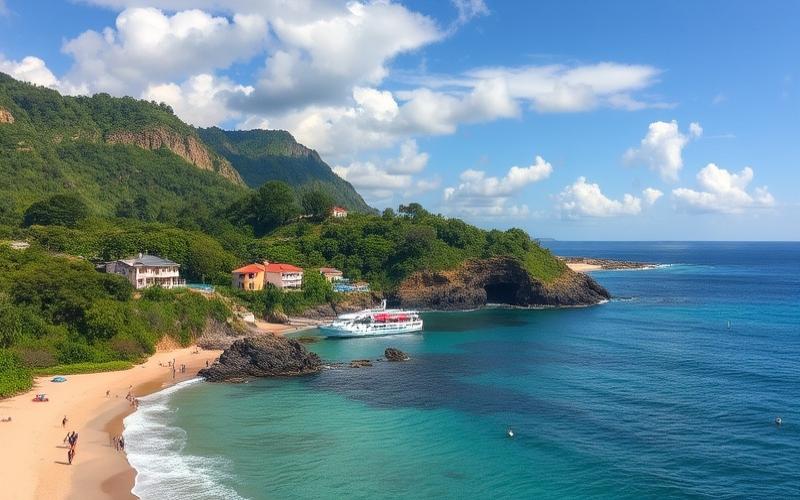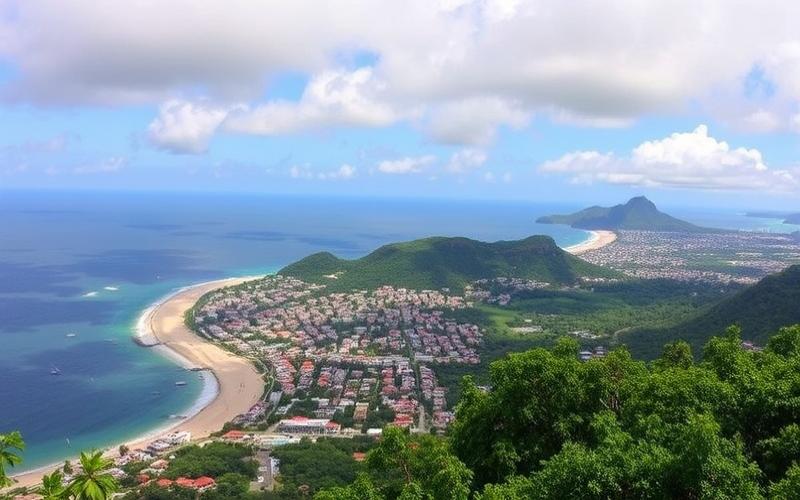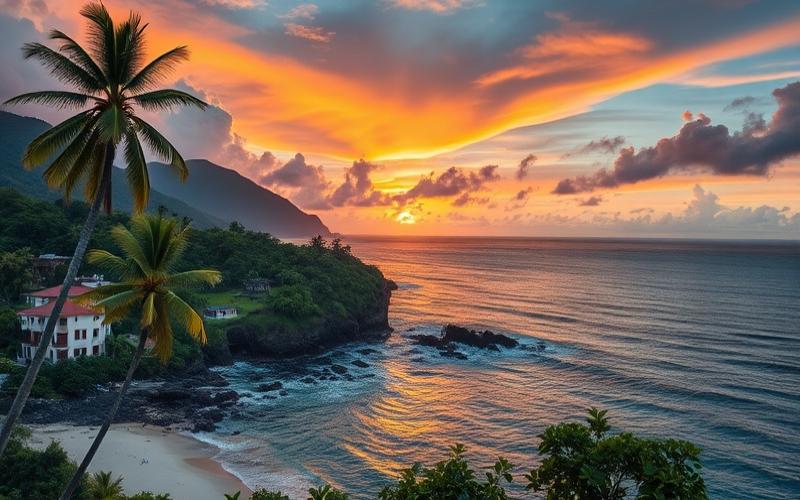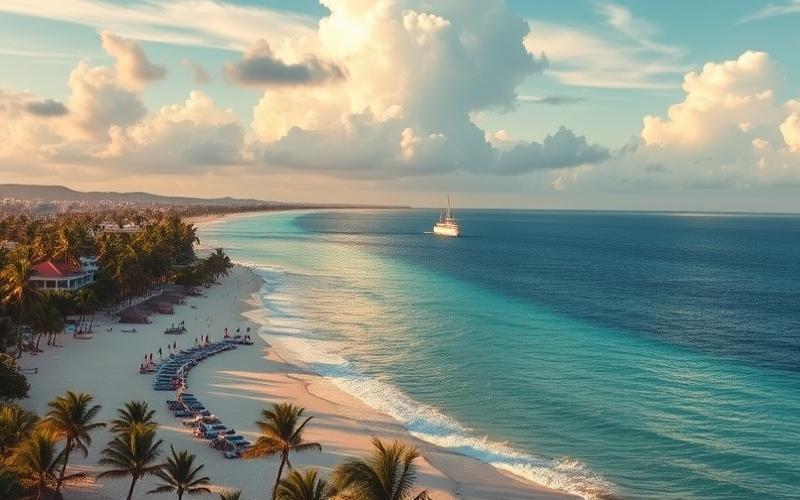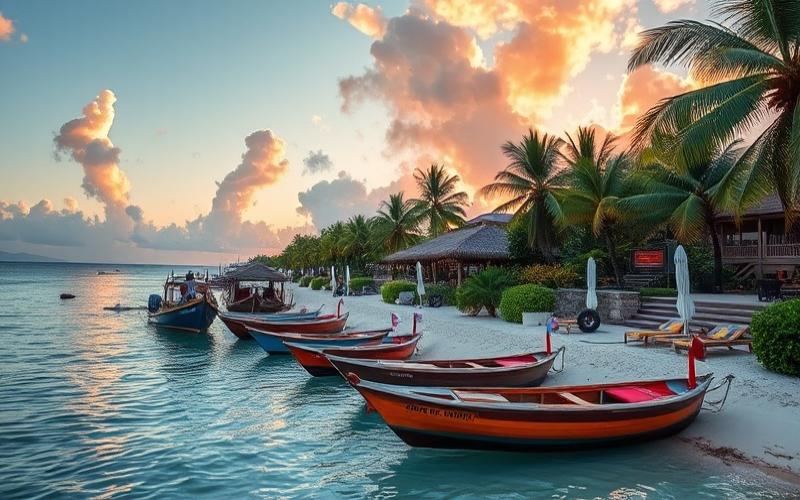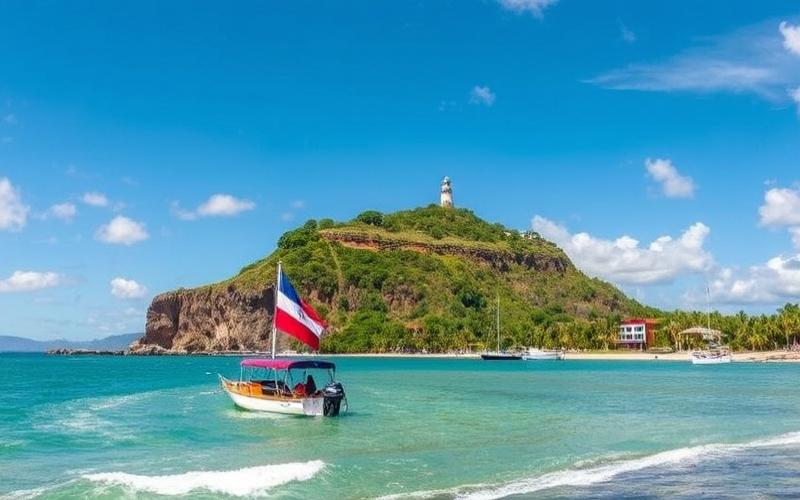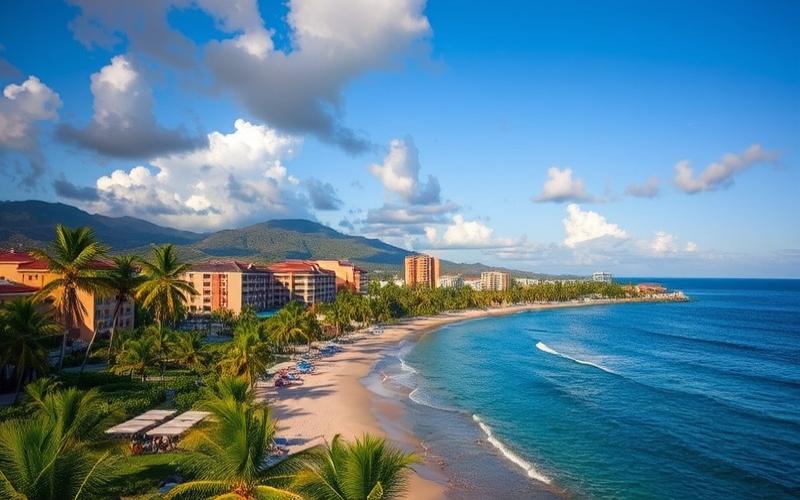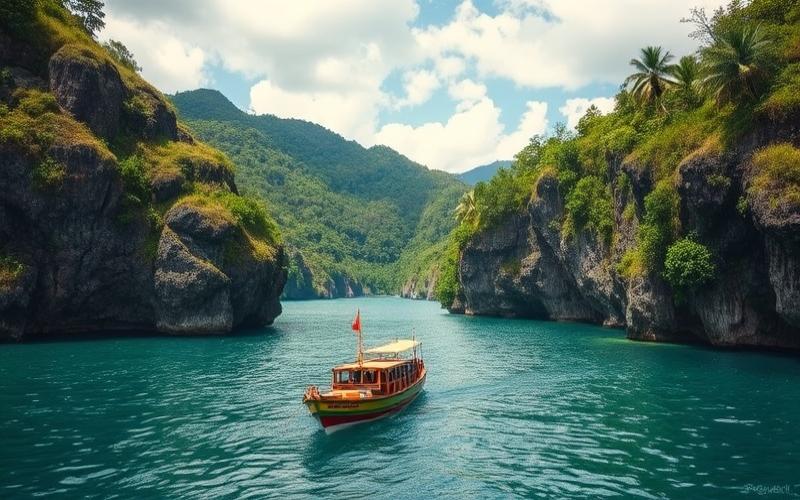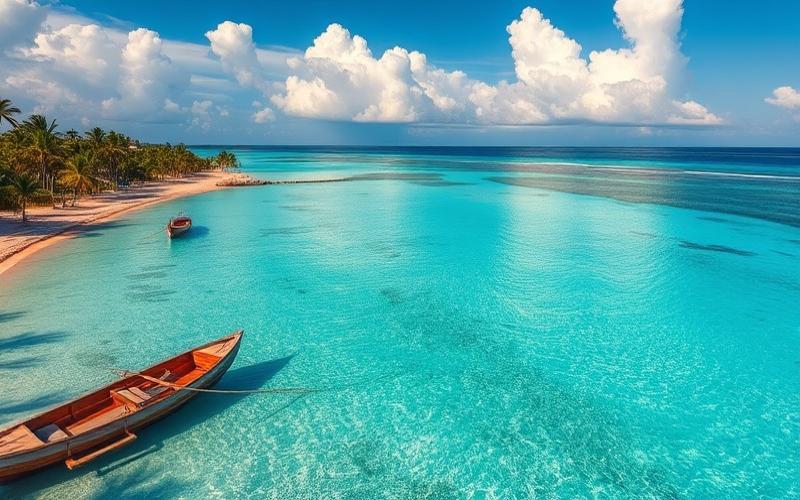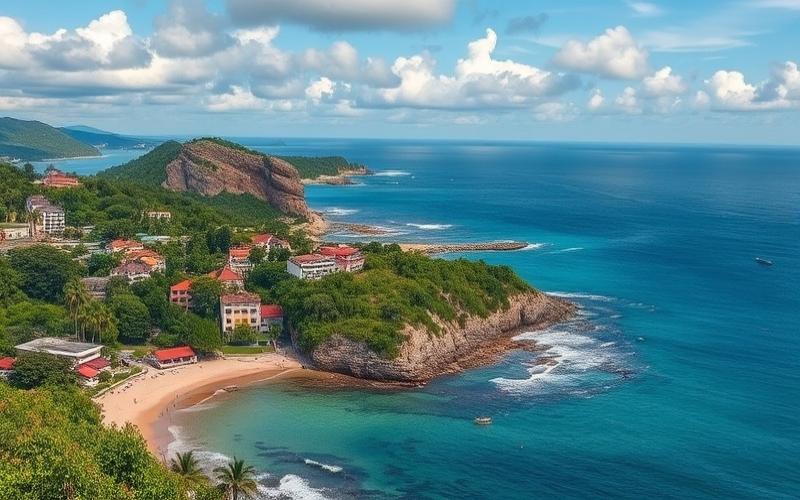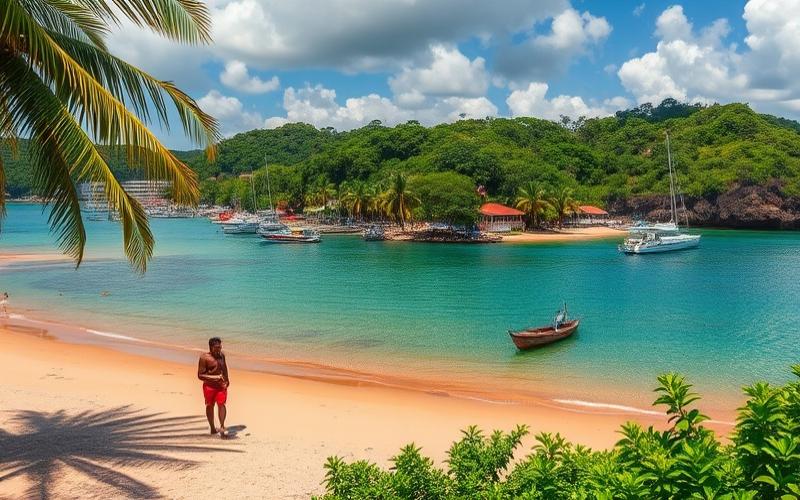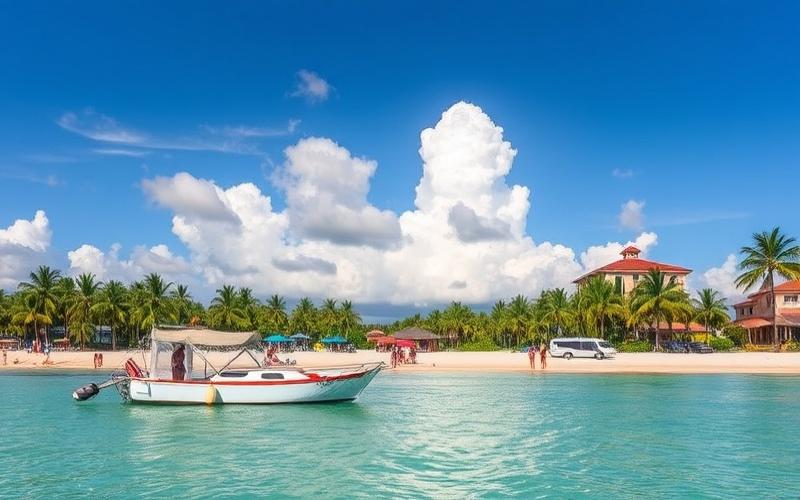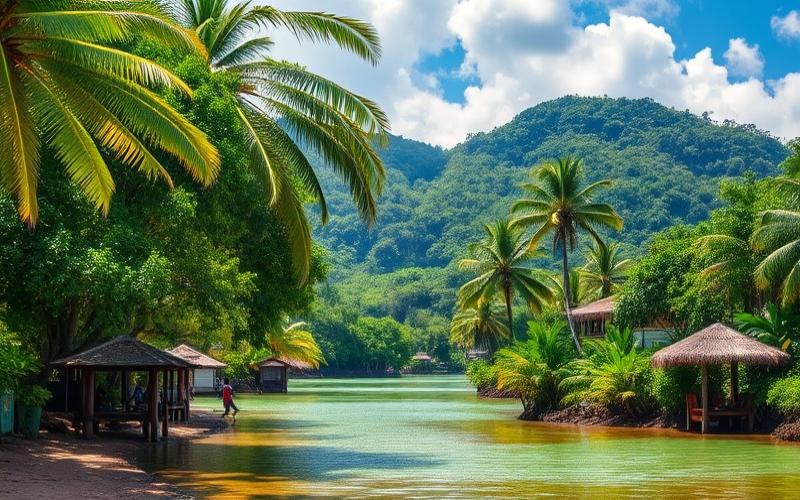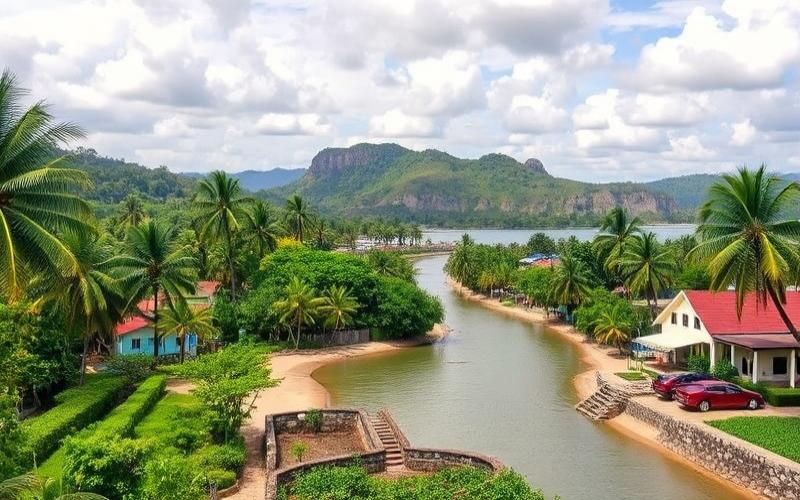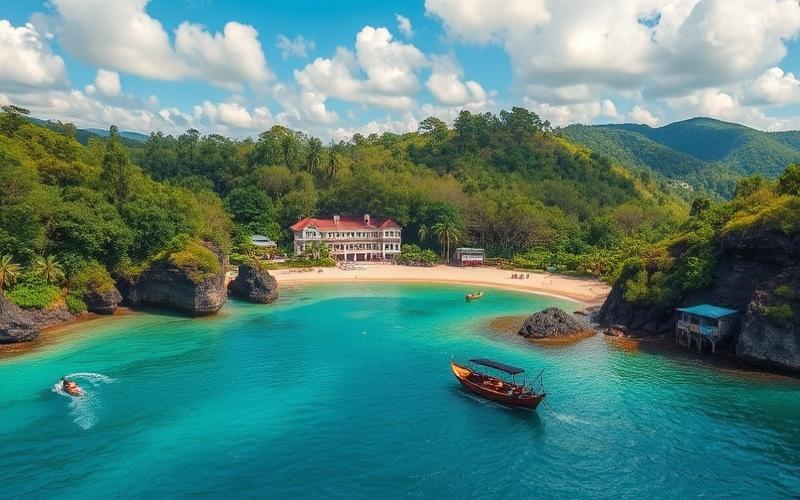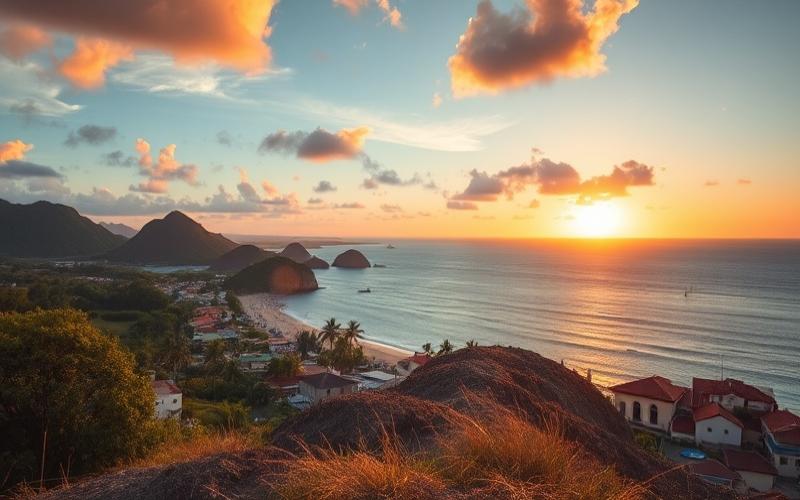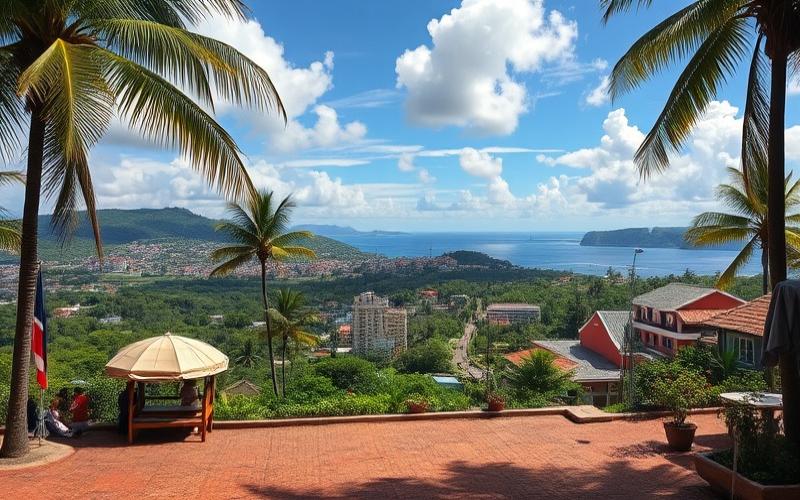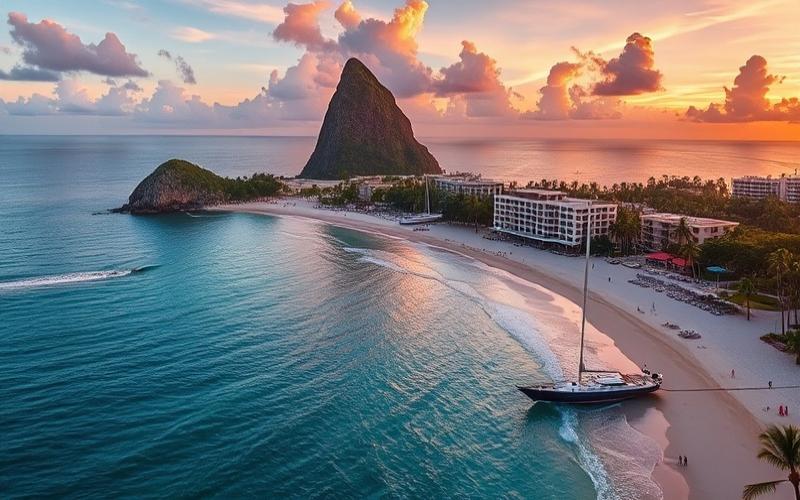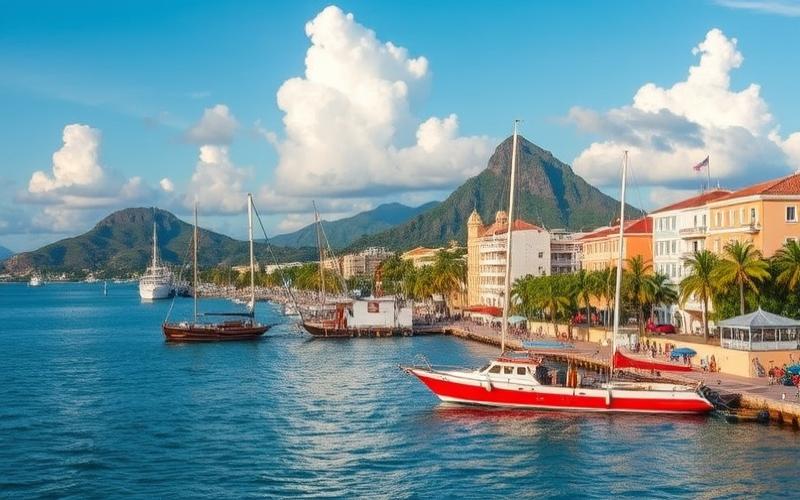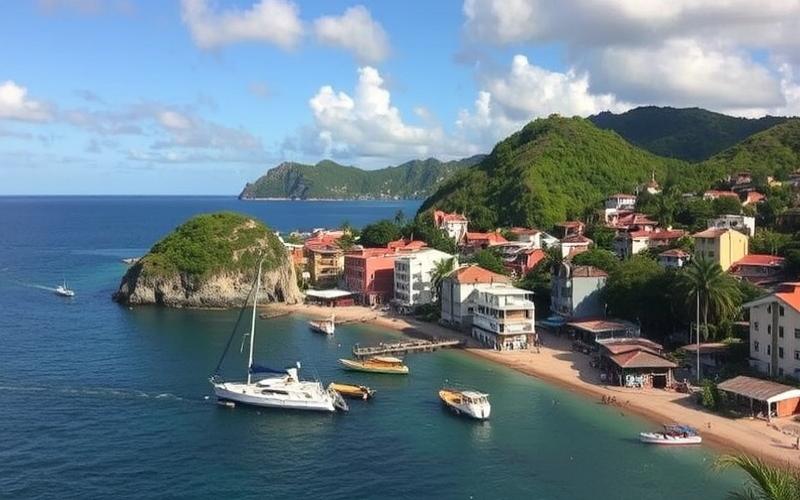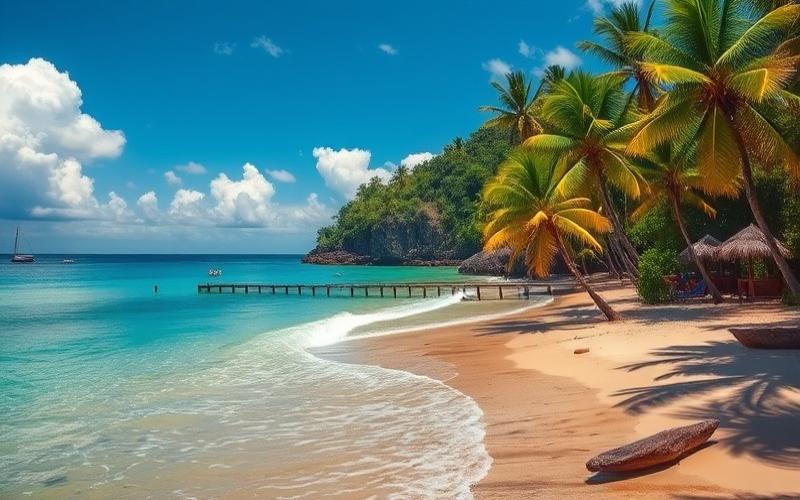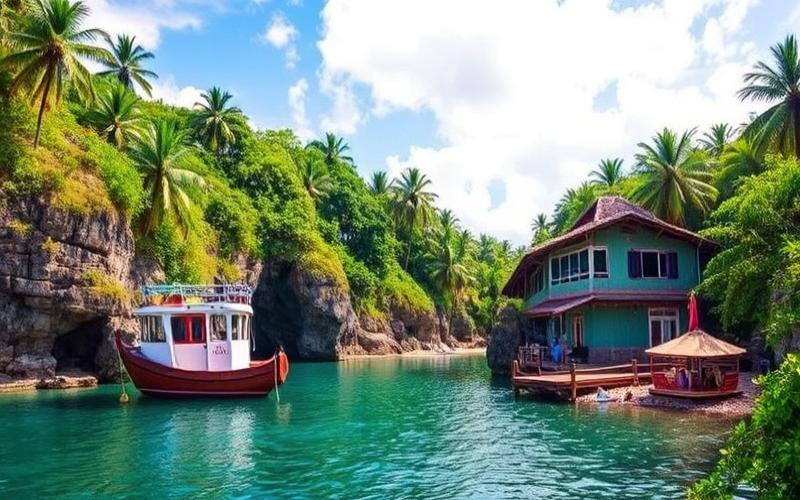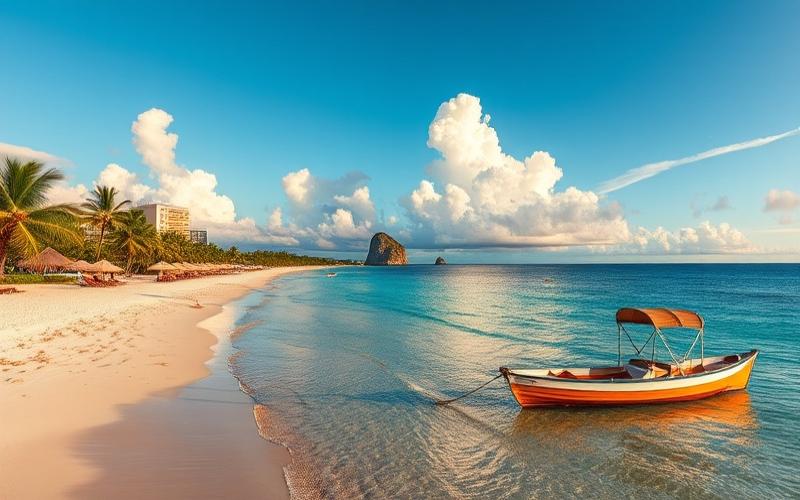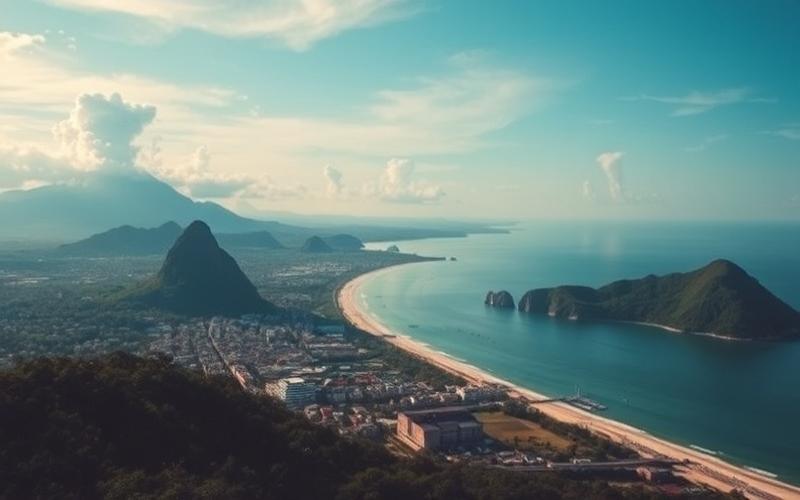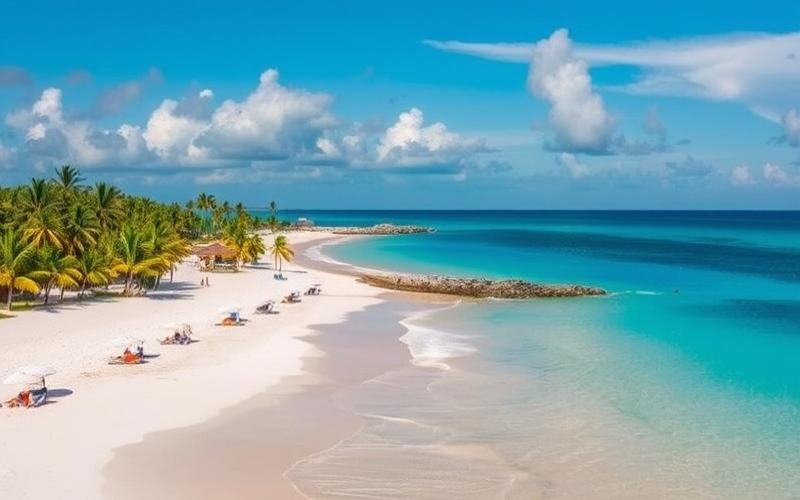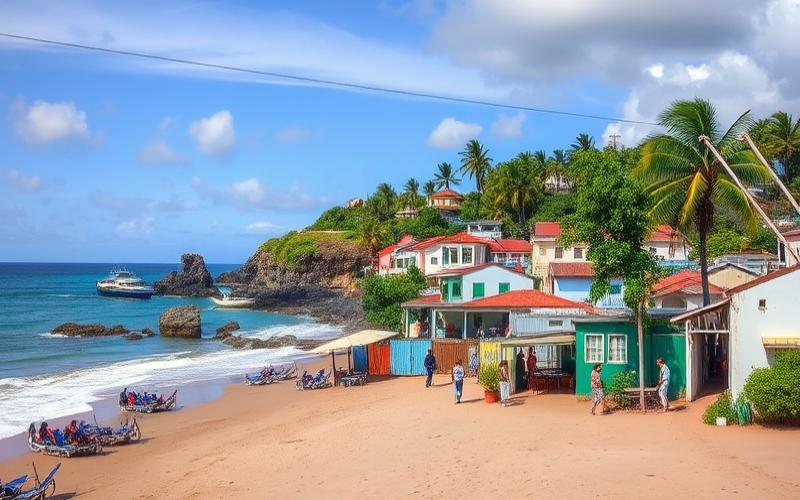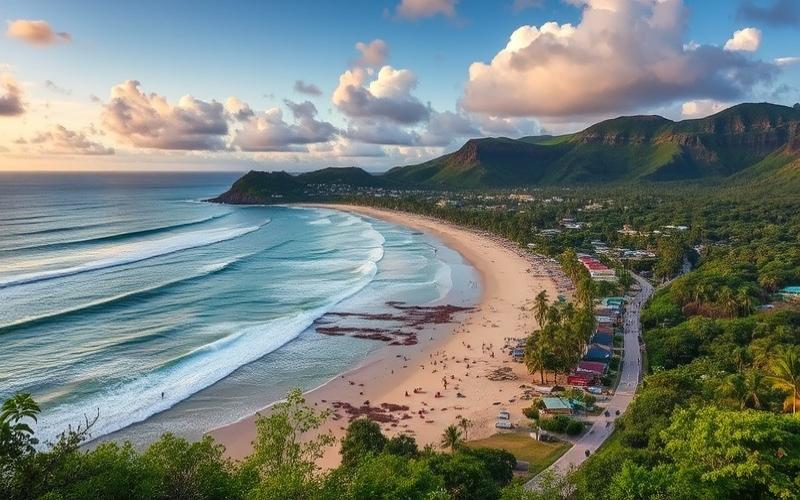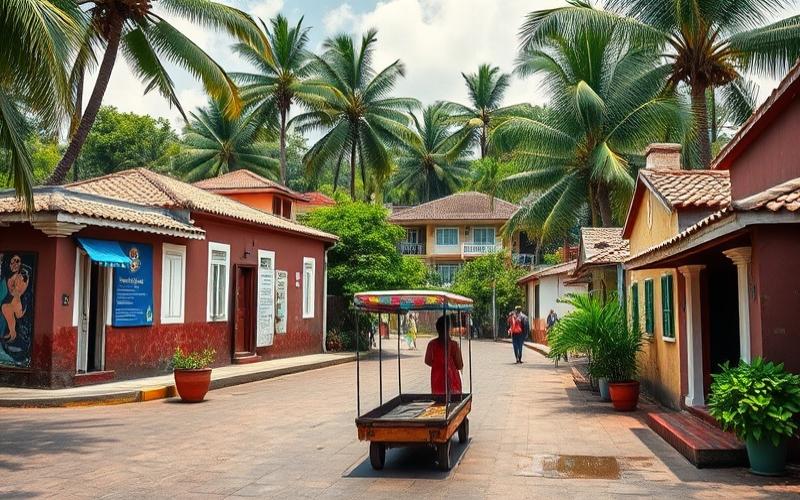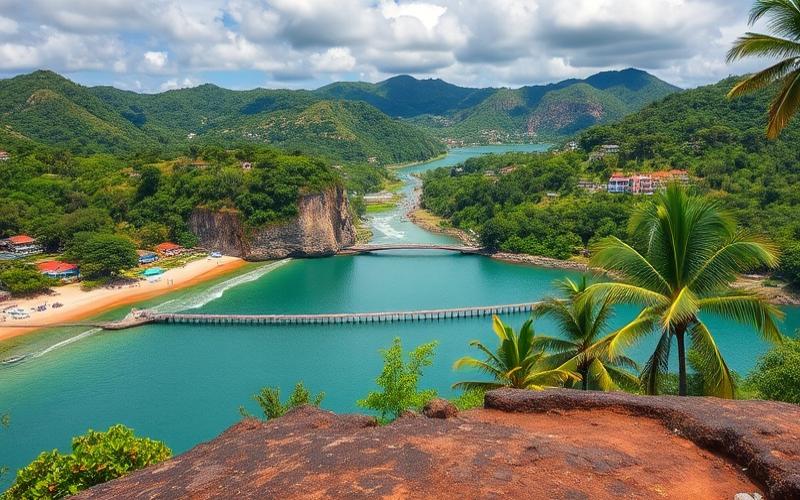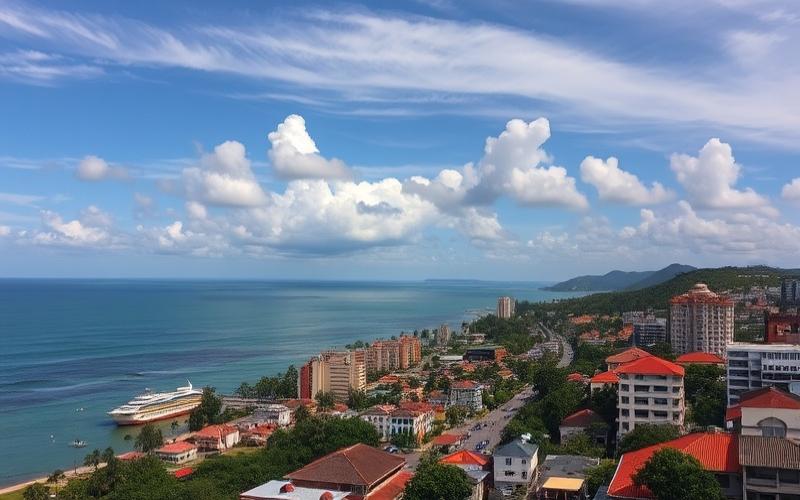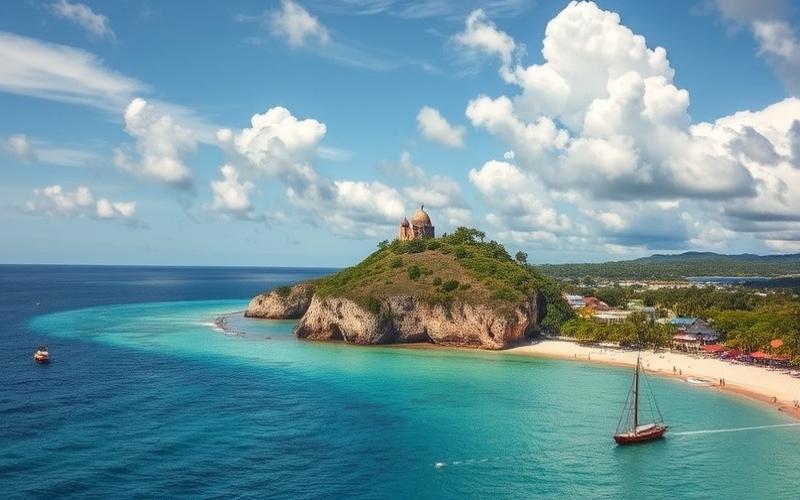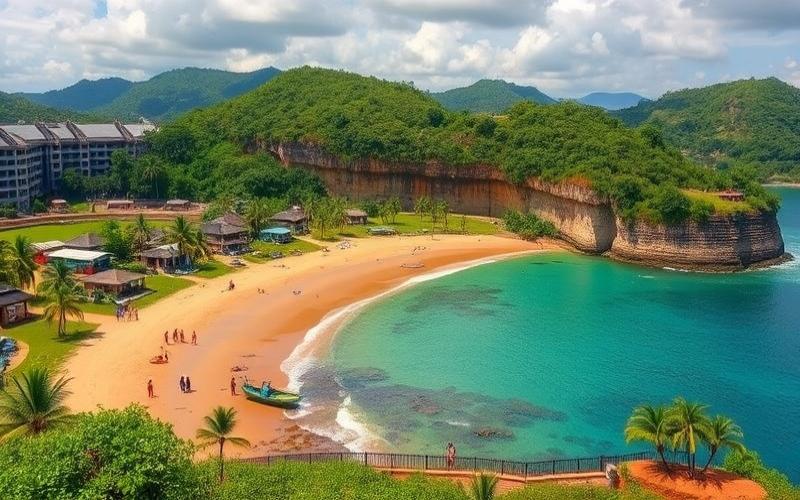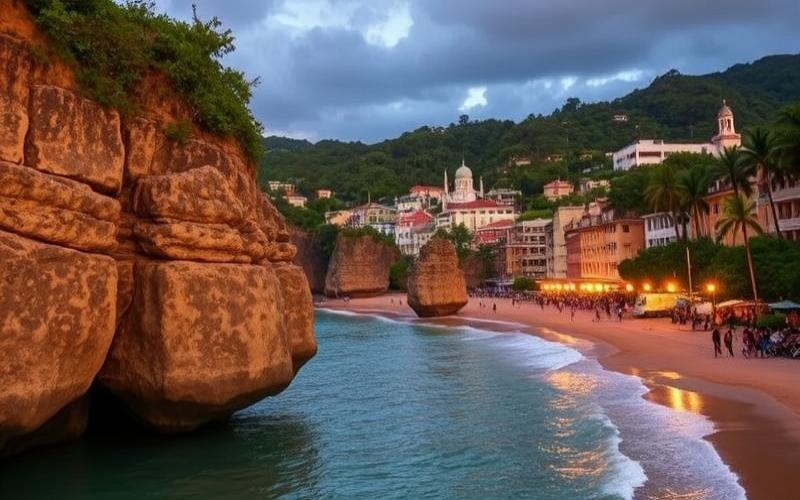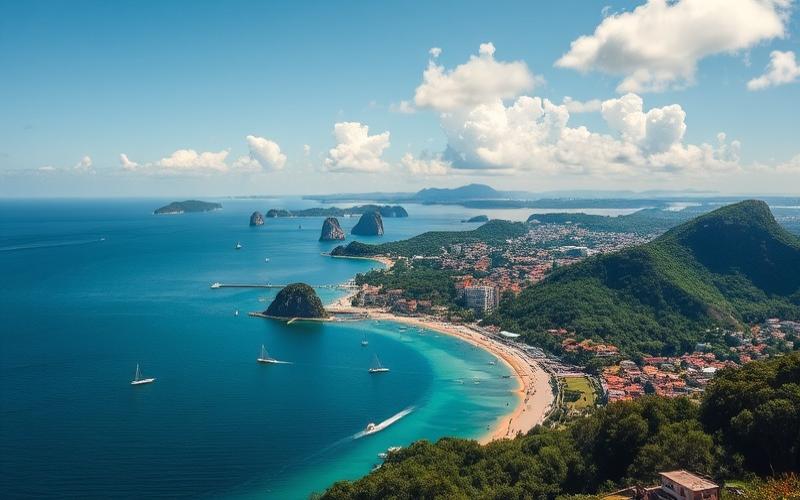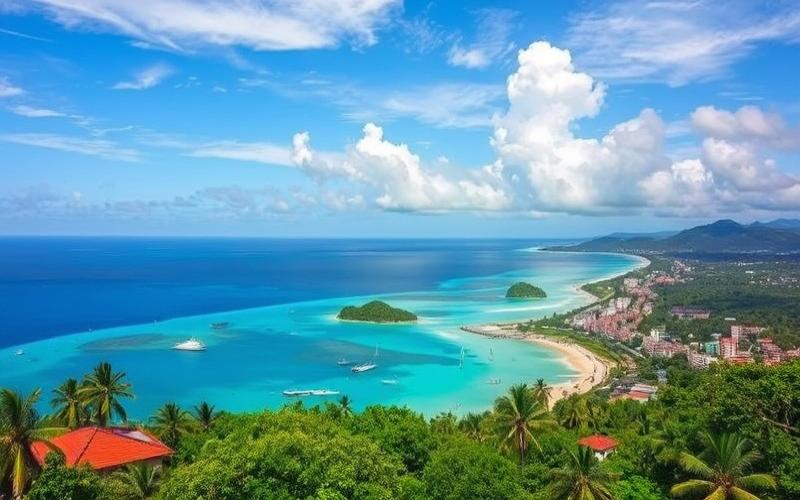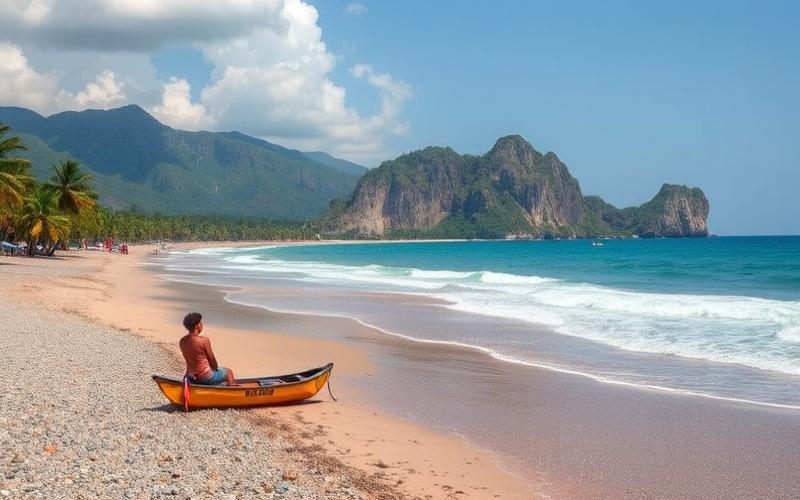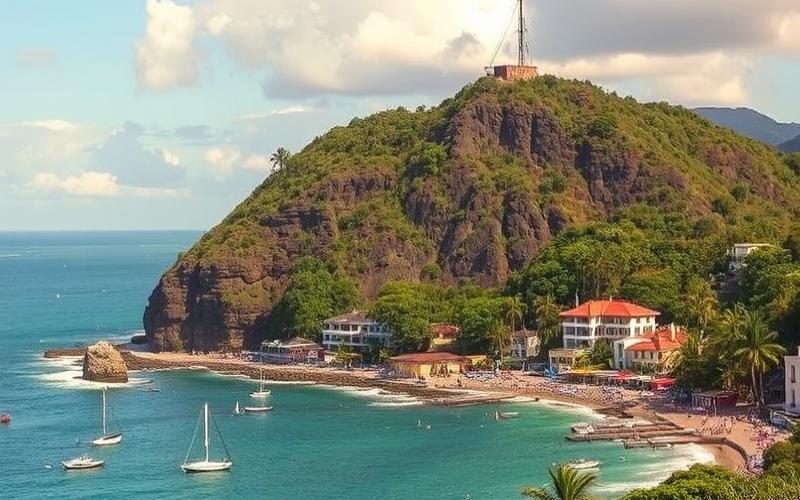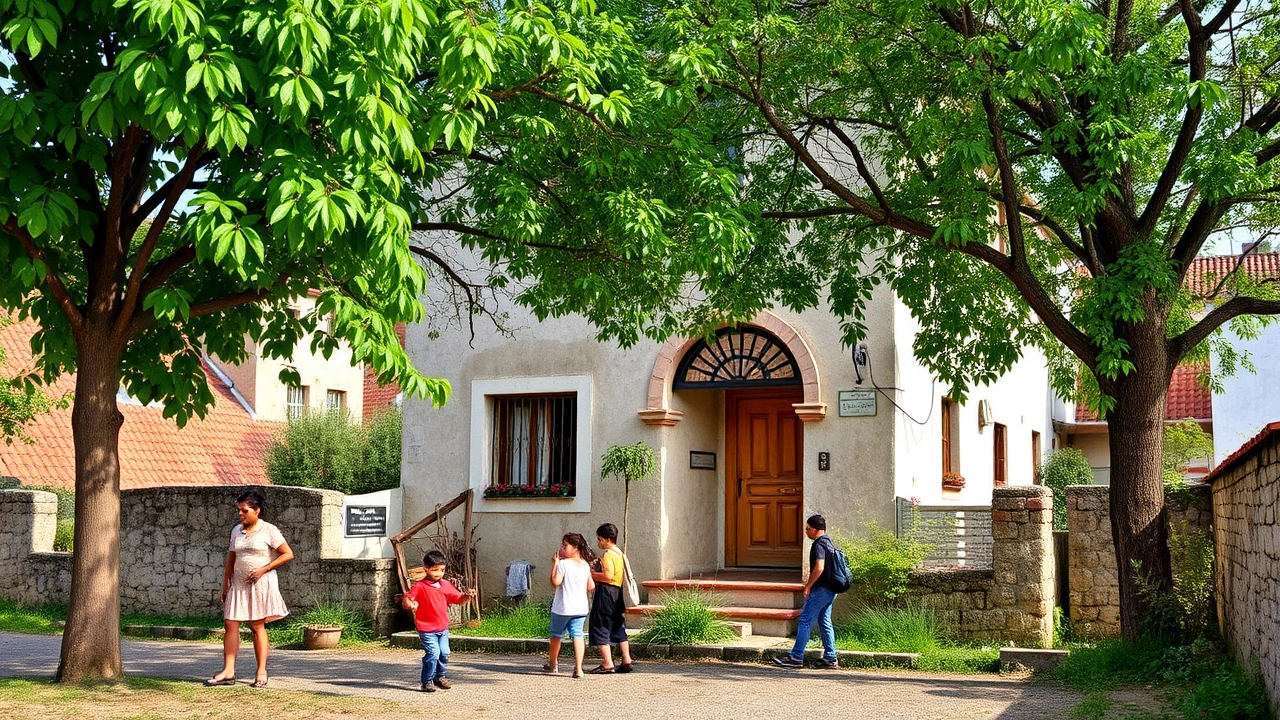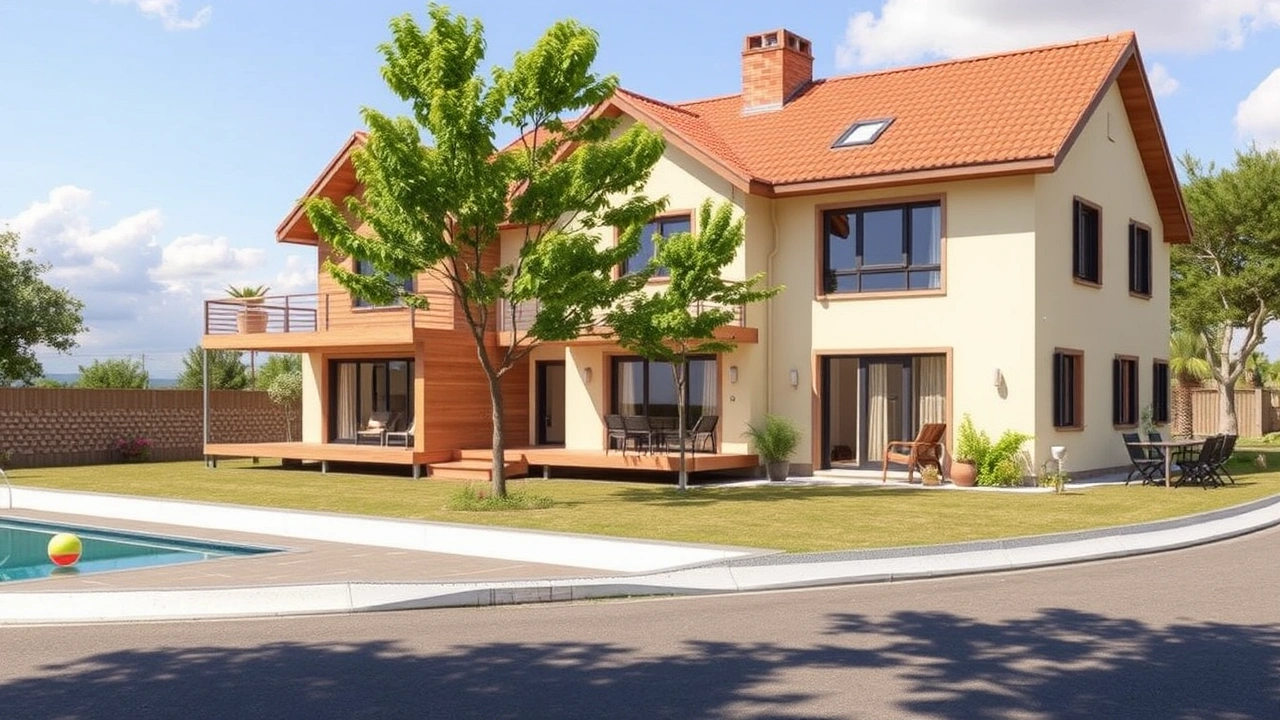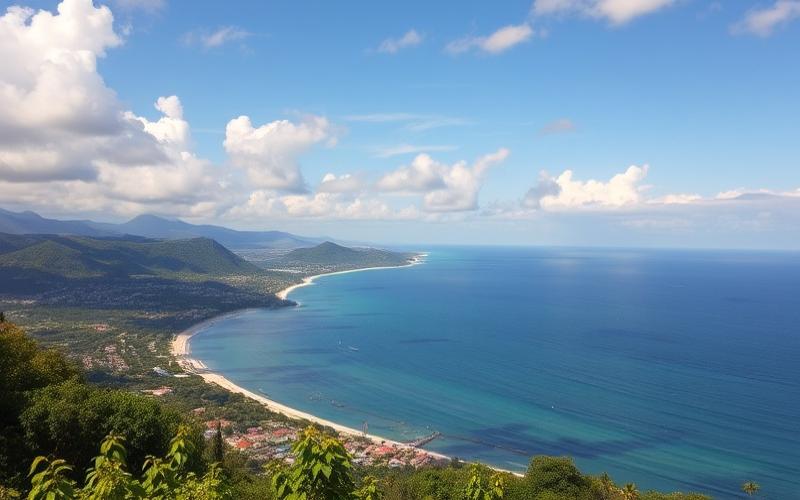
 Published on and written by Cyril Jarnias
Published on and written by Cyril Jarnias
Relocating to the Dominican Republic: A Dream Come True
In a world constantly seeking opportunities and new perspectives, many choose relocation as a path to a more promising future. Among these modern adventurers, French citizens who have settled in the Dominican Republic perfectly illustrate this quest for new horizons.
Attracted by the tropical climate, cultural richness, and often more affordable cost of living, increasing numbers are investing in local real estate, turning their dreams into reality.
Through captivating testimonials, this article takes you on a journey to discover a lifestyle that is both exotic and ambitious, where charm and challenges intertwine to offer a unique and enriching experience.
Good to Know:
The Dominican Republic offers attractive tax benefits for foreign investors, particularly in the real estate sector.
Introduction to French Expat Experiences in the Dominican Republic
The Dominican Republic, located in the heart of the Caribbean, has attracted a growing community of French expats for several years, drawn by its white sand beaches, tropical climate, and warm local culture. This island, the largest in the region after Cuba, offers a living environment where friendliness blends with a sought-after quality of life desired by many French citizens.
Main Motivations for French Expats:
- Year-round sunny climate with temperatures between 25°C and 32°C.
- Lower cost of living compared to France: the local average salary (around €618) remains well below the French standard of living, allowing expats with external income or French pensions to live comfortably.
- Attractive real estate opportunities: acquisition of properties (apartments, villas) by the sea at competitive prices compared to mainland France.
- Welcoming community and openness to foreigners: French citizens benefit from a positive image and are often perceived as affluent.
Statistics and French Presence:
Number of registered French citizens: between 3,000 and 4,000 in recent years, mostly concentrated in major cities (Santo Domingo, Santiago) and especially in Las Terrenas, nicknamed the “French village.”
Communities and associations: presence of organizations like the Alliance Française, French schools, and support groups to facilitate the integration of newcomers.
| Indicator | Approximate Value |
|---|---|
| Total population | 10.6 million |
| Foreign population | 450,000 (4.5% of population) |
| Registered French citizens | 3,000 to 4,000 |
| Main expat city | Las Terrenas |
| Local average income | €618/month |
| French average income | €2,238/month |
Cultural Aspects Influencing Expat Experiences:
Dominican life emphasizes friendliness, celebrations, music (merengue, bachata), and a relaxed approach to time.
The official language is Spanish, but in areas with a strong French presence, French is commonly heard.
Expats must adapt to a different administration, sometimes perceived as slow or complex, and to distinct local customs (time management, importance of personal networks).
Frequently Cited Advantages:
- Beachside quality of life and climate.
- Affordable cost of living for Europeans.
- Real estate investment opportunities.
- Ease of integration into Franco-Dominican communities.
Common Challenges:
- Language barrier for those who don’t speak Spanish.
- Safety: rising crime rates requiring vigilance.
- Adapting to a different pace of life and administrative standards.
- Managing legal and real estate procedures, importance of working with competent professionals.
Key Takeaways
The Dominican Republic attracts with its pleasant lifestyle, but relocation requires preparation, cultural adaptation, and vigilance, particularly regarding real estate and safety. Testimonials from French expat homeowners help illuminate these contrasting realities.
Good to Know:
The Dominican Republic attracts many French expats thanks to its paradise beaches, pleasant tropical climate, and often more accessible cost of living than in mainland France. Approximately 5,000 French citizens reside there, drawn by advantageous real estate opportunities, particularly in tourist areas like Punta Cana and Las Terrenas, where properties are competitively priced. Francophone communities, such as the Association of French Citizens in the Dominican Republic, provide valuable support, fostering integration and social connections. However, expats must adapt to notable cultural differences, such as local bureaucracy, and challenges related to sometimes uneven infrastructure. Testimonials often highlight the enriching cultural mix but also the necessity of mastering Spanish to better navigate daily life and secure real estate investments.
Building a New Life: Real Estate in the Dominican Republic Through Expat Eyes
Testimonials and Motivations of French Expat Homeowners in the Dominican Republic
Several French expats report choosing the Dominican Republic for various reasons: pleasant year-round climate, lower cost of living than France, quality of life, relaxed atmosphere, and opportunities for creation or entrepreneurship. Jenny and Laurent, settled in Las Terrenas, explain:
“We found almost everything we were looking for in the Dominican Republic: education, safety, a relatively low cost of living, and especially a pleasant climate year-round. The possibility of creation was also crucial for us.”
Léo, another expat, initially visited the island to learn Spanish but chose to settle permanently, captivated by the local culture and landscapes.
Challenges Encountered When Purchasing Properties
- Complex administrative procedures: Processes can be lengthy and require proper guidance.
- Search for reliability: Expats recommend choosing a trustworthy lawyer to avoid pitfalls and verify property title legality.
- Logistics of moving: Jenny and Laurent recount the difficulty of transporting their personal belongings from Europe, with unexpected delays during delivery.
Practical Advice from French Expats
- Avoid impulsive decisions, thoroughly prepare your project, and visit the country multiple times before committing.
- Surround yourself with competent local professionals (lawyers, real estate agents).
- Scrupulously verify property titles and administrative documents.
- Anticipate cultural and administrative differences compared to France.
Popular Neighborhoods and Cities Among French Expats
| City/Neighborhood | Key Features |
|---|---|
| Las Terrenas | Strong Francophone community, friendly atmosphere, beaches, restaurants, schools |
| Punta Cana | Tourist area, numerous services, modern infrastructure |
| Santo Domingo | Urban life, presence of major French brands, business opportunities |
| Cabarete | Water sports spot, international atmosphere, real estate appeal |
Real Estate Purchase Process in the Dominican Republic (Summary)
- Signing a preliminary sales agreement (purchase contract).
- Verification of property titles by a lawyer.
- Payment of a deposit (often 10%).
- Finalization of the deed of sale before a notary.
- Property registration with local authorities.
Cultural and Administrative Differences Experienced
- Less formality than in France, but sometimes more unexpected events and delays.
- Importance of local networks and word-of-mouth.
- French citizens bring their lifestyle, particularly in gastronomy, and sometimes influence local habits (e.g., wine at aperitif).
- Differences in waste management and environmental awareness, which can be surprising initially.
Reflections on Quality of Life and Integration
- Affordable cost of living and tropical climate cited as major advantages.
- Warm welcome from Dominicans, but necessity to adapt to a slower pace of life and different culture.
- Integration facilitated in areas with established Francophone communities, but learning Spanish remains a key factor.
- Some note proximity to nature and a sense of freedom, but also emphasize the need to remain vigilant regarding safety and social inequalities.
“The quality of life is excellent thanks to a relatively low cost of living and a pleasant tropical climate year-round.”
“You must be prepared to face unexpected events and adapt to a culture where not everything works as it does in France.”
Good to Know:
French expats who have chosen to acquire property in the Dominican Republic often mention the beauty of the living environment and real estate costs as main motivations. Thierry, settled in Punta Cana, highlights the mild climate and proximity to beaches. However, he notes that it’s crucial to thoroughly research the purchase process, sometimes complex due to required documentation and administrative nuances. Neighborhoods like Piantini in Santo Domingo or Cap Cana are prized for their safety and modern infrastructure. Between cultural differences, such as the importance of relationships in transactions, and the local administrative system where patience is often required, he advises being accompanied by a specialized lawyer. In terms of daily life, the French community appreciates the warm welcome from locals and a quality of life where friendliness and relaxation prevail.
Living in the Dominican Republic: Expat Reviews and Practical Advice
“What was supposed to be a simple language trip turned into a new life. Today, I enjoy the magnificent beaches for surfing when I’m not working hard to help my clients find their dream home.” (Léo, formerly from Vaucluse)
Daily Experiences and Challenges
- The cost of living is often cited as a major advantage: local food, rents outside tourist areas, and activities are much more affordable than in France.
- Cultural integration requires real adaptation:
- Expats appreciate Dominican friendliness but sometimes note a “laid-back” pace of life that can surprise those accustomed to French efficiency.
- Learning Spanish greatly facilitates daily life; many recommend taking courses upon arrival or even before departure.
- The issue of safety frequently arises:
- While some neighborhoods remain very safe, vigilance is required in large cities where crime and delinquency have increased in recent years.
- It’s advised to avoid conspicuously displaying signs of wealth.
| Theme | Perceived Advantages | Disadvantages / Challenges Encountered | Adopted Solutions |
|---|---|---|---|
| Cost of Living | Affordable daily life | Expensive imported products | Prioritize local products |
| Integration | Welcoming population | Slow pace, lengthy procedures | Arm yourself with patience |
| Safety | Quiet neighborhoods available | Increased crime in certain areas | Choose neighborhood carefully |
| Admin. Procedures | Simplified formalities for some visas | Sometimes opaque or slow procedures | Consult a local lawyer |
Anecdote: During a move by ship from Europe, Jenny & Laurent recount that their pallet was stored for several weeks due to disorganization during unloading – a typical experience illustrating the relative lack of local logistical infrastructure.
Practical Tips to Facilitate Your Move
- Connect with expats already on the ground through Francophone Facebook groups or local associations (especially in Las Terrenas).
- Don’t hesitate to consult a local lawyer recommended by the community to avoid any administrative surprises during procedures (residency, real estate purchase…).
- Test several neighborhoods before any long-term rental commitment: Santo Domingo offers all urban services but remains noisier; Las Terrenas attracts with its strong French presence and relaxed beach atmosphere.
Concrete Checklist:
- Prepare all necessary administrative documents before departure, translated if possible
- Budget for unexpected expenses related to cultural/organizational differences
- Get involved in local initiatives or associations to quickly develop your social network
“Twenty years ago, it was unthinkable here to drink wine with meals. Today it has become trendy thanks to the French communities settled here.”
Aspects that differ significantly from France:
- Time management (“mañana” doesn’t always have a literal meaning…)
- Approach to administrative rules (much less formalized)
- Importance given to local social networks rather than official procedures
Useful Local Resources:
- Local Francophone associations
- Specialized forums and social networks dedicated to expats
- French consular services mainly located in the capital
“Don’t do anything on impulse! Take your time before any important decision. And above all… choose your lawyer carefully!”
In summary: living in the Dominican Republic attracts with its climatic and human warmth but requires patience in the face of administrative delays and genuine cultural openness – without forgetting vigilance regarding safety depending on chosen neighborhoods.
Good to Know:
French expats living in the Dominican Republic often emphasize the importance of choosing your neighborhood carefully, citing places like Piantini or Naco in Santo Domingo for their safety and proximity to amenities. Daily life can be more affordable than in France, but the cost of imported products remains high. Thomas, settled for two years, highlights the importance of learning Spanish to integrate and efficiently manage administrative procedures, often less rigid than in France but poorly computerized. Céline, an expat in Punta Cana, advises thoroughly understanding real estate rental contracts, often complex. Safety is a concern, so expats recommend remaining vigilant and avoiding certain neighborhoods at night. Social networks are easily built through expat groups on social media that offer valuable support and practical daily advice. Using local transportation can be confusing initially, but prioritizing private transport for safer travel is recommended. Cultural activist Anaïs shares that participating in local activities not only helps with cultural integration but also enriches the life experience.
Purchase Testimonials: Challenges and Successes of Expat Homeowners
Testimonials and Experiences of French Expats Who Became Homeowners in the Dominican Republic
“Buying here was a dream, but don’t underestimate the on-the-ground reality. Administrative procedures are sometimes disconcerting: absence of certain protective laws, delays in obtaining property titles… For me, the help of a competent local agency was decisive in avoiding bad surprises.”
— Marc, apartment owner in Punta Cana
“I came to manage a small hotel with my partner. The location was idyllic, but we quickly discovered that daily management is fraught with obstacles: difficulties finding clients outside tourist season, cultural differences in management and workplace community life… I almost lost everything without local support and deep self-reflection.”
— Anne, former hotel owner-manager in Las Terrenas
Main Challenges Encountered
- Cultural differences
- Informal business approach
- Different staff management (flexible hierarchy)
- Slower pace of life than expected by some French citizens
- Administrative procedures
- Purchase possible with just a passport (no residency needed), but vigilance required on legal formalities
- Obtaining land titles sometimes lengthy or complicated depending on the region
- Legal obstacles
- Evolving legal framework around seasonal or commercial rentals
- Frequent need for notarial or local professional assistance to guarantee legal security
| Type of Acquisition | Specific Difficulties | Testimonial Summary |
|---|---|---|
| Single-family home | Running water not guaranteed everywhere; unreliable electrical grid; increased administrative complexity outside tourist areas | “The rural charm seduced me but I hadn’t anticipated the cost or delays to connect water and electricity. You have to be patient!” — Lucie |
| Apartment | Simplified purchase through local agencies; more regulated condominiums in recent complexes; often high fees in luxury residences | “Thanks to an experienced Francophone agency, I avoided all the pitfalls: they handled everything until my move-in.” — David |
| Commercial property | Complex human management (local staff); strong dependence on tourism; necessity to understand local market and its seasonal cycles | See Anne’s testimonial above |
Successes Achieved
- Decisive support from local real estate agencies that facilitate administrative procedures and quick property acquisition.
- Real possibility to legally purchase upon arrival with just a passport.
- Attractive rental yields thanks to growth in international tourism (up to 10–15%/year).
- Daily life perceived as more relaxed: pleasant climate year-round, moderate costs.
List of frequently cited recommendations:
- Always verify each official document yourself with the land registry before signing.
- Seek advice from expats settled for several years.
- Budget extra funds for unexpected administrative or technical expenses.
- Never underestimate the language barrier: learning essential Spanish phrases greatly facilitates all procedures.
“Never buy on impulse without thorough investigation! The postcard often hides a much more complex reality… But if you prepare properly and surround yourself well locally, it can also be the beginning of a successful new life in the tropics!”
Good to Know:
Many French expats in the Dominican Republic share varied testimonials about real estate purchases, mentioning challenges related to cultural and administrative differences. Arnaud, for example, had to overcome unexpected legal obstacles but emphasizes the importance of having a competent local lawyer. Isabelle recounts how the valuable help of a local real estate agency simplified her house acquisition, thus facilitating her integration into the community. As for Jean, who invested in an apartment for commercial use, he advises thoroughly understanding the local rental market to avoid pitfalls. These expats recommend learning some subtleties of the language and local customs to navigate the purchase process more effectively, illustrating that success often results from preparation and adequate support.
Disclaimer: The information provided on this website is for informational purposes only and does not constitute financial, legal, or professional advice. We encourage you to consult qualified experts before making any investment, real estate, or expatriation decisions. Although we strive to maintain up-to-date and accurate information, we do not guarantee the completeness, accuracy, or timeliness of the proposed content. As investment and expatriation involve risks, we disclaim any liability for potential losses or damages arising from the use of this site. Your use of this site confirms your acceptance of these terms and your understanding of the associated risks.

